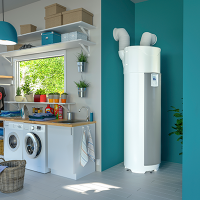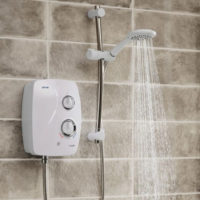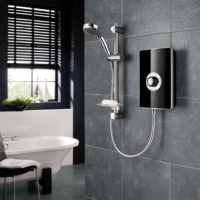1.What is it?
An Air to water heat pump is a complete heating system for your home or business, providing all your heating and water needs.
2.How does it work?
A heat pump works on the very same principle as your fridge at home, but just in reverse. Your fridge is kept cool on the inside, but if you put your hand to the back of it you can feel the warmth. The heat pump is basically a fridge, trying to cool the outside environment, and as a result it pushed the resulting heat in to the home.
3.What does it look like?
There are three parts to the system; the collector, the heat pump itself and a distribution centre.
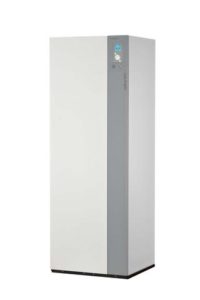
Inside Unit
4.Is the technology classed as a renewable energy?
Yes is it, and installing it in your new build is an easy way to comply with the Part L regulations.
5.Will it save me money?
It sure will. It typically costs 50% – 60% less to heat your home than a traditional fossil fuel system. Your electricity bill will be higher as the heat pump uses power to gather in all that free energy, but you will have no fuel bill at all. Plus a smartphone app will let you control the heating and see what your heating and hot water is costing you in real time!
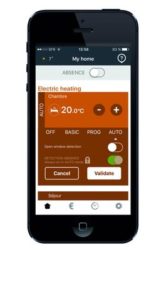
Smartphone App
6.Why should I use it in my new build?
Anyone who is taking on a new build will be well aware of Part L building regulations. It requires a 40% reduction in energy demand and carbon dioxide emissions associated with heating, domestic hot water and lighting in a new build. The air to water heat pump complies with this regulation. From a financial perspective you are looking at the same cost or less than fitting say an oil-fired burner and solar panels.
7.Can it be retro fitted in my home?
Yes, and the great news is there are now grants available for clients wishing to retrofit. There is an air to water system which gathers heat directly from the air, raising its temperature through compression. With no ground work required for a collector, this air to water system is the favoured choice when replacing traditional central heating boilers in your home. Any financial investment may be recouped in savings in as little as five years.
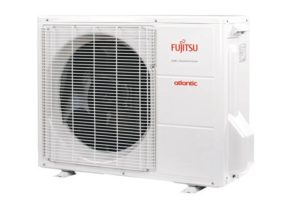
Outside Unit
8.In a retrofit would I need a full upgrade of radiators?
Not at all, in most cases the existing radiators work perfectly with the new system, they are left running at a lower temperature for longer periods of time. But each case has to be considered on a job to job basis.
9.Is there a lot of maintenance involved?
Absolutely not, there is very little servicing involved. But the system should be checked out by the installers or manufacturers once a year.
10.What is the lifespan of the heat pump?
Market experience has shown that the heat pump, much like a fridge freezer, has the lifespan of 15 – 20 years.

